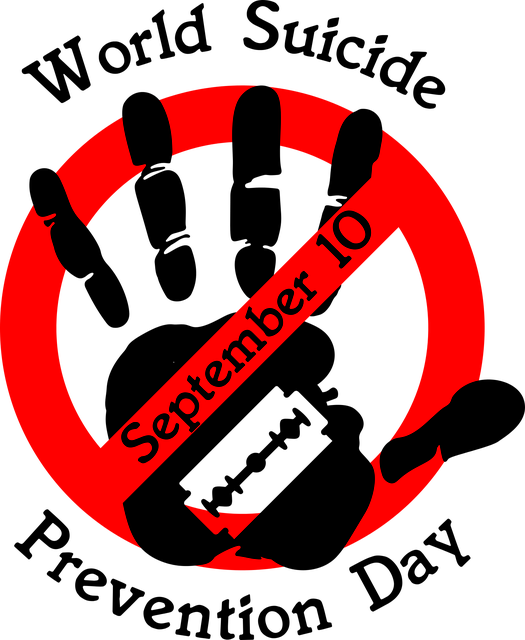Mental health professionals at practices like Boulder Divorce Therapy face high risks due to handling sensitive issues, complex family dynamics, and intense emotions related to divorce. They play a crucial role in prevention and mediation but are prone to burnout and empathy fatigue. Effective risk management involves staying updated on research, ethical guidelines, and best practices, along with public awareness campaigns to reduce stigma. Boulder Divorce Therapy prioritizes comprehensive risk management planning, including initial risk assessments, regular reviews, and personalized treatments for stress reduction, ensuring both therapist well-being and improved client outcomes.
In the demanding field of mental health, professionals face unique risks that require tailored risk management planning. This article explores the essential steps for creating a robust strategy, focusing on the specific challenges encountered in practices like Boulder Divorce Therapy. By understanding the range of potential hazards—from patient confidentiality breaches to burnout—mental health practitioners can develop proactive measures. We present a structured approach, including case studies, to guide professionals in crafting, implementing, and regularly reviewing their risk management plans.
- Understanding the Unique Risks in Mental Health Practice
- Developing a Comprehensive Risk Management Plan
- Implementing and Reviewing the Plan Effectively at Boulder Divorce Therapy
Understanding the Unique Risks in Mental Health Practice

Mental health professionals encounter a unique set of risks that differ from other sectors. The nature of their work often involves dealing with sensitive and personal issues, which can be emotionally taxing. In the case of practices like Boulder Divorce Therapy, therapists not only navigate complex family dynamics but also manage the intense emotions associated with divorce and separation. This can lead to potential burn-out, empathy fatigue, and secondary trauma for practitioners.
Additionally, mental health professionals must be adept at conflict resolution techniques as they frequently mediate between clients and their personal challenges. They play a pivotal role in Depression Prevention by helping individuals cope with depression and anxiety disorders. Furthermore, the evolving landscape of healthcare requires professionals to stay abreast of research developments, ethical guidelines, and best practices. Public Awareness Campaigns Development can also be a significant aspect, educating the public about mental health issues to reduce stigma and foster an environment conducive to open discussions.
Developing a Comprehensive Risk Management Plan

In the competitive and emotionally demanding field of mental health services, such as those offered by Boulder Divorce Therapy, professionals must prioritize risk management to ensure their well-being and maintain effective practice. Developing a comprehensive risk management plan is an essential step in fostering resilience and mitigating potential hazards. This involves a strategic approach to identifying and addressing various risks that therapists may encounter in their careers.
By implementing a structured plan, mental health practitioners can enhance their ability to navigate challenging situations, manage stress effectively (using proven Stress Reduction Methods), and maintain work-life balance. It includes establishing clear guidelines for self-care routine development, burnout prevention strategies, and protocols for handling difficult client cases. Such proactive measures not only safeguard the therapist’s mental health but also contribute to improved client outcomes in a dynamic therapeutic environment.
Implementing and Reviewing the Plan Effectively at Boulder Divorce Therapy

At Boulder Divorce Therapy, we understand that effective risk management planning is paramount for mental health professionals. Our approach involves a multi-faceted strategy that combines comprehensive risk assessment and ongoing review to ensure our methods remain robust and relevant. We begin by meticulously evaluating each client’s unique situation using a structured risk assessment tool, tailored to identify potential triggers or vulnerabilities. This process allows us to implement personalized interventions aimed at stress reduction and coping skills development.
Regularly scheduled reviews of the risk management plan are an integral part of our practice. Through these sessions, we meticulously examine progress, reassess risks, and make informed adjustments to treatment strategies. By fostering a culture of continuous improvement, we stay agile in addressing emerging challenges, ensuring that both clients and therapists remain safe and supported throughout the therapeutic journey. This proactive approach is what sets Boulder Divorce Therapy apart, reflecting our commitment to excellence and safety in mental health care.
Mental health professionals, such as those at Boulder Divorce Therapy, face unique risks in their practice. By understanding these specific challenges and developing a comprehensive risk management plan, therapists can enhance patient safety and foster a healthier work environment. Effective implementation and regular review of this plan are key to mitigating potential harms and ensuring the well-being of both clients and practitioners. This proactive approach not only protects individuals but also strengthens the overall resilience of mental health care providers.














